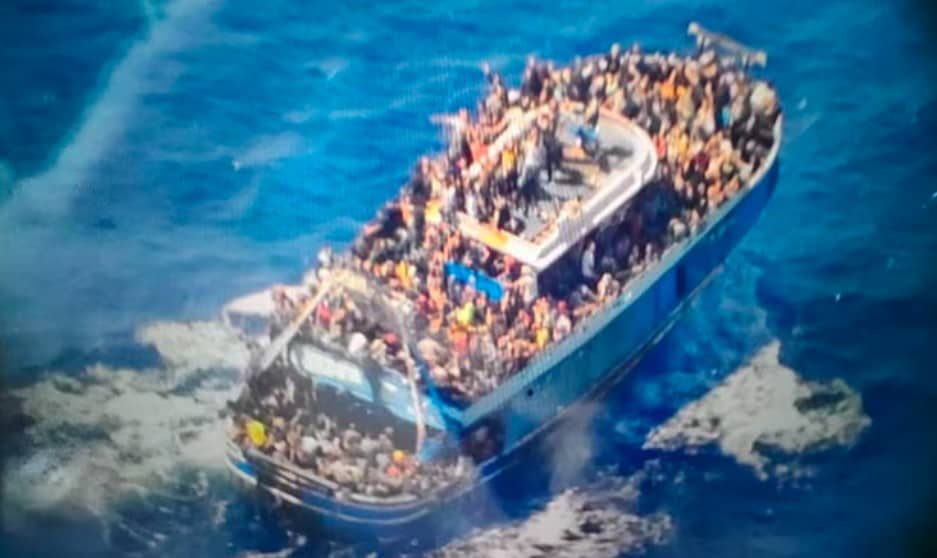Rights groups, including Human Rights Watch (HRW) and Amnesty International, are criticising the Greek authorities for their handling of the investigation into a migrant shipwreck that resulted in more than 500 deaths off the Peloponnese. The incident occurred on June 14, making it one of the worst boat disasters in the Mediterranean.
HRW and Amnesty International allege that the Hellenic Coast Guard's "actions and omissions" contributed to the shipwreck. Six months into the investigation, with survivors demanding justice, concerns are raised about the accountability prospects due to the inquiry's progress.
The ship, piloted by people smugglers from Libya and bound for Italy, sank about 50 miles off the southern Greek town of Pylos. It was carrying approximately 750 individuals and sank within minutes. A rescue operation brought 104 male survivors ashore, while the trawler, which sank in one of the deepest areas of the Mediterranean, has yet to be found.
“This could be the second deadliest shipwreck we have ever recorded after the tragic shipwreck of April, 2015 on route to Italy,” the UN migration agency’s Missing Migrants Project tweeted at the time.
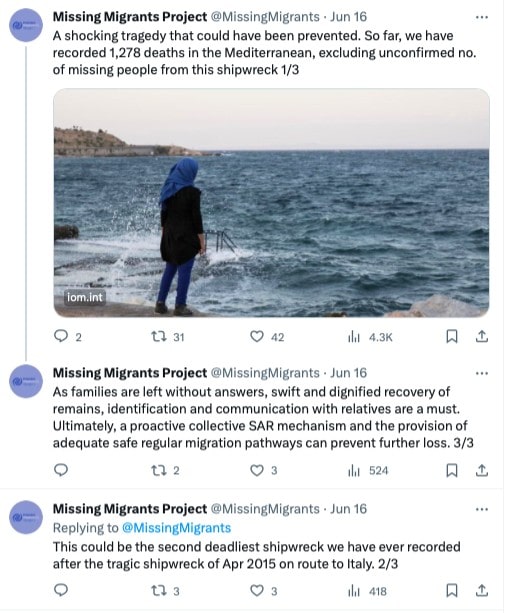
Conflicting accounts of the events leading to the disaster have been a cause for concern from the start. Survivors describe the vessel capsizing after coast guard officers attempted to tow it out of Greek waters, while Greek officials deny such attempts, stating the boat sank in international seas.
Amnesty International and HRW claim that Greek authorities failed to mobilise "appropriate resources for a rescue" and "ignored or redirected" offers of assistance from the EU border agency Frontex. The groups argue that despite being alerted to the presence of children and sick passengers, the Greek patrol boat reportedly did nothing until it was too late.
According to the human rights groups, “Survivors said that a coast guard patrol boat attached a rope to the Adriana [the trawler] and pulled, causing the boat to capsize. They also alleged that, after the boat capsized, the coast guard was slow to activate rescue operations, failed to maximise the number of people rescued and engaged in dangerous manoeuvres.”
The rights groups urge Greek authorities to prosecute officials if there is evidence of wrongdoing. They suggest that survivors allege a coast guard patrol boat caused the trawler to capsize and that rescue operations were slow and insufficient.
Campaigners argue that the authorities' handling of the incident may indicate a pushback strategy, forcibly evicting asylum seekers into neighbouring countries or waters controlled by Italy. The Greek government denies enforcing pushbacks but acknowledges implementing 'tough but fair' migration management policies.
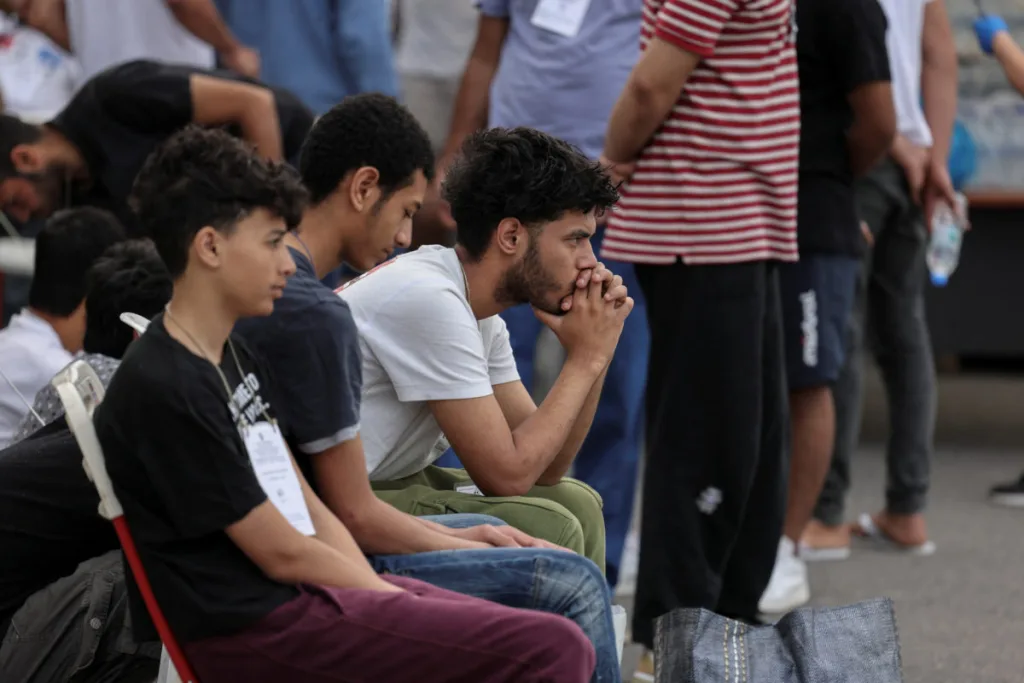
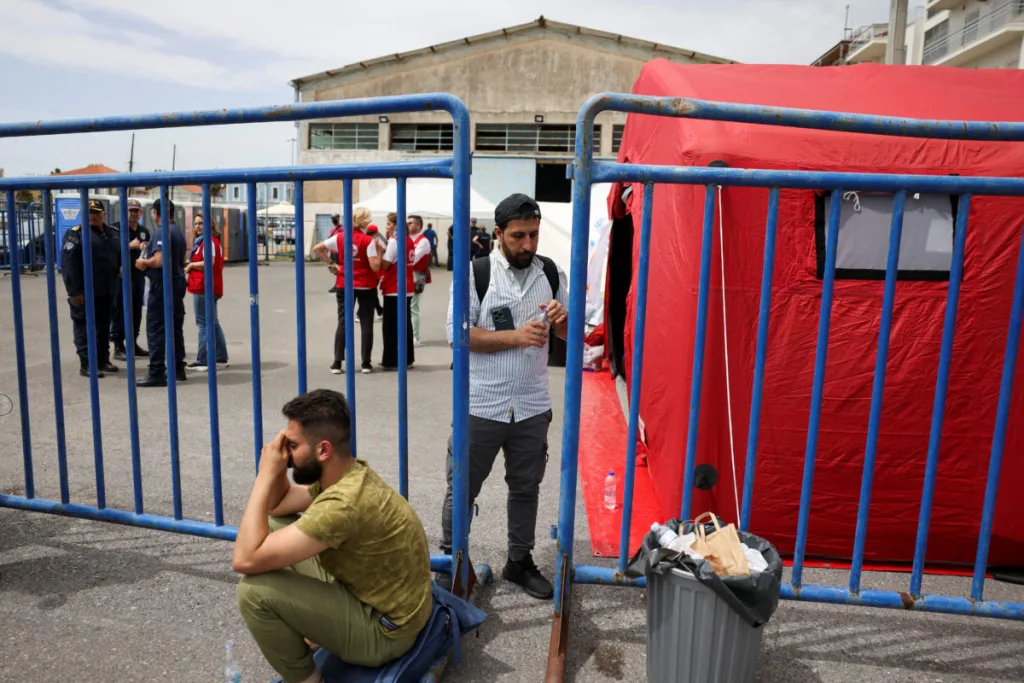
In her June 2023 article published in the Guardian, human rights, racism and civil liberties writer Diane Taylor, criticises governments for scapegoating "evil people smugglers" when migrant boat tragedies occur. She highlights the tendency of authorities, including the Greek government, to deflect scrutiny by blaming smugglers, even when evidence suggests their involvement. Taylor questions the narrative of placing sole blame on smugglers and calls for a pragmatic approach, addressing conditions in migrants' home countries and expediting asylum claims, rather than relying on unachievable rhetoric.
Greek Prime Minister Kyriakos Mitsotakis, in a BBC interview, asserts the country's right to intercept boats at sea and encourages their return. He blames the ship's crew for refusing assistance, instead focusing upon the accountability of smugglers.
“We’re investigating this particular incident … at the same time, I’ve been very open and forthcoming that we feel we have a right to intercept boats at sea and at the same time encourage these boats to return to the coast from where they left, he said adding that the ship’s crew had repeatedly rejected offers of help.
“They refused any assistance. They wanted to get to Italy. And at the end of the day we should hold the smugglers accountable, not the coast guard that is trying to do its job.”
Over half of the 40 survivors taking legal action against the Greek state have yet to testify. Nine Egyptian suspects accused of overseeing the smuggling operation and detained in Kalamata are awaiting trial.
The Hellenic coast guard has not responded to the human rights groups' claims, citing ongoing judicial and non-judicial investigations. Survivors and their families are demanding justice, emphasising the need for accountability given the tragedy occurred in Greek waters.
Time is crucial, according to Lefteris Papagiannakis, who serves as the director of the Greek Council for Refugees. Representing the majority of survivors calling for an inquiry into the tragedy, he stresses the urgency of the matter.
“Someone has to be held accountable, after all the shipwreck happened in Greece,” he says. “Survivors, the families of victims, they all want justice. So many people perished. They are all lying at the bottom of the sea and the heart-breaking thing is that we will never know who they were, or how many there are.”
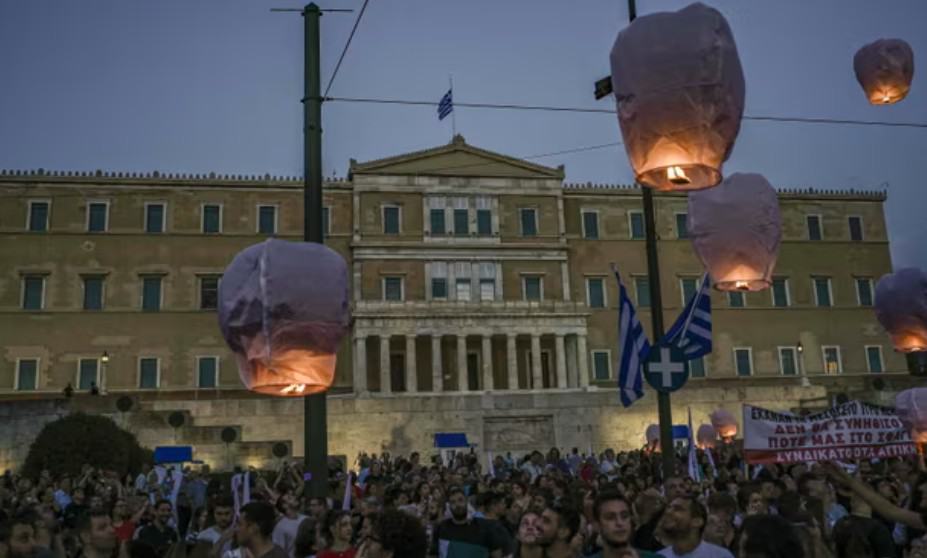
Read also: Sustainable Sailing in Greece: GNTO UK Promotes Eco-Conscious Tourism

